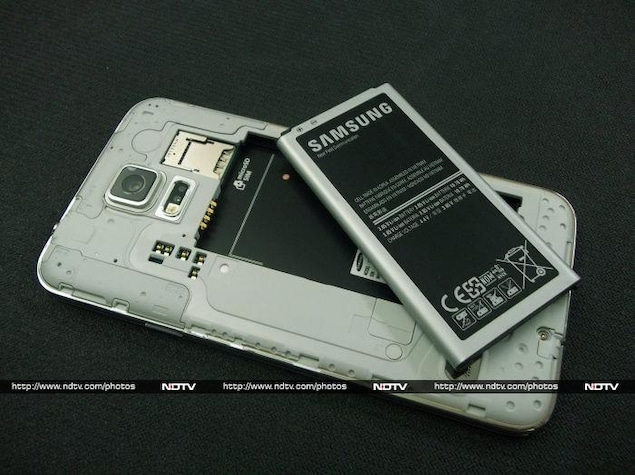- Home
- Laptops
- Laptops News
- 'Your Laptop, Mobile Batteries Leak Information That Can Reveal Your Identity'
'Your Laptop, Mobile Batteries Leak Information That Can Reveal Your Identity'

If you think switching to Incognito mode in your Web-browser or using a proxy tool ensures complete anonymity, you're seriously mistaken. A new study suggests that even a battery could reveal enough information about us.
A team of security researchers have published a paper titled "The Leaking Battery" in which they discuss the kind of information a battery is spilling about us. The researchers note that this apparent leakage isn't because of malware, but a built-in specification of HTML5, a core technology markup language used for presenting the World Wide Web.
HTML5's Battery API lets websites glean information such as the amount of battery left in a visitor's device. The idea behind this feature is to let the Web publishers know that a visitor's device, for instance, doesn't have much battery left, so that they could offer them a toned down version (more energy efficient) version of their website.
But the way it happens, information such as the amount of remaining battery life, as well as the time it would take to fully discharge the device, and its current charge level are shared. As we browse between different websites and more websites get the data, it becomes possible to piece together all these information and pinpoint our identity.
"A third-party script that is present across multiple websites can link users' visits in a short time interval by exploiting the battery information provided to Web scripts," noted the researchers. "The readings will be consistent on each of the sites, because of the fact that the update intervals (and their times) are identical."
"This could enable the third-party script to link these concurrent visits. Moreover, in case the user leaves these sites but then, shortly afterwards, visits another site with the same third-party script, the readings would likely be utilised to help in linking the current visit with the preceding ones."
The researchers note that as of June 2015, Firefox, Chrome, and Opera were among the Web-browsers that supported Battery Status API. This affects both mobile devices and laptops. One could use Tor, a Firefox-based browser with advanced privacy and security features, to hide their identity, researchers noted.
Catch the latest from the Consumer Electronics Show on Gadgets 360, at our CES 2026 hub.
Related Stories
- Samsung Galaxy Unpacked 2025
- ChatGPT
- Redmi Note 14 Pro+
- iPhone 16
- Apple Vision Pro
- Oneplus 12
- OnePlus Nord CE 3 Lite 5G
- iPhone 13
- Xiaomi 14 Pro
- Oppo Find N3
- Tecno Spark Go (2023)
- Realme V30
- Best Phones Under 25000
- Samsung Galaxy S24 Series
- Cryptocurrency
- iQoo 12
- Samsung Galaxy S24 Ultra
- Giottus
- Samsung Galaxy Z Flip 5
- Apple 'Scary Fast'
- Housefull 5
- GoPro Hero 12 Black Review
- Invincible Season 2
- JioGlass
- HD Ready TV
- Laptop Under 50000
- Smartwatch Under 10000
- Latest Mobile Phones
- Compare Phones
- Tecno Spark Go 3
- iQOO Z11 Turbo
- OPPO A6c
- Samsung Galaxy A07 5G
- Vivo Y500i
- OnePlus Turbo 6V
- OnePlus Turbo 6
- Itel Zeno 20 Max
- Lenovo Yoga Slim 7x (2025)
- Lenovo Yoga Slim 7a
- Lenovo Idea Tab Plus
- Realme Pad 3
- Garmin Quatix 8 Pro
- NoiseFit Pro 6R
- Haier H5E Series
- Acerpure Nitro Z Series 100-inch QLED TV
- Asus ROG Ally
- Nintendo Switch Lite
- Haier 1.6 Ton 5 Star Inverter Split AC (HSU19G-MZAID5BN-INV)
- Haier 1.6 Ton 5 Star Inverter Split AC (HSU19G-MZAIM5BN-INV)

















